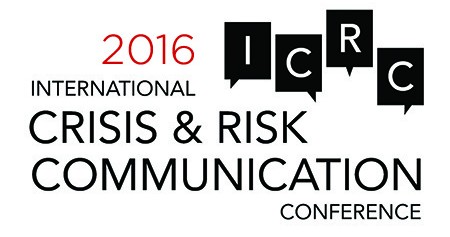
Associate Professor
Wayne State University
United States
Dr. Novak’s research focuses broadly on applied communication within health contexts. While she frequently asks questions from an critical interpretive perspective, she approaches research by focusing on the pragmatic questions and readily employs a mixed-method design.
Presently, she is working on risk and crisis communication issues pertaining to health and food safety. Some current projects include (1) working with Middle Eastern and Arab American communities in the Detroit area to understand risk perceptions and helpful communication strategies for under-represented populations; (2) analyzing the Centers for Disease Control and Prevention’s response to and organizational learning from the Anthrax Crisis in 2001, and (3) developing models for assessing and managing risk communication during food borne illness outbreaks and crises.
Ongoing research focuses on the nature and role of democratic communication practices in organizations situated in high risk conditions.
CDC Employee Reflections on the Anthrax Experience: Understanding Tensions in Organizational and Individuals’ Constructions of Risk and Role Identities
Co-author and co-presenter: Deborah Sellnow-Richmond, Wayne State University
In the fall of 2001, almost immediately following the terrorist attacks on September 11, the United States experienced the Anthrax attacks, acts of bioterrorism. In response, the Centers for Disease Control (CDC) emerged as one, if not the, governmental agency responsible for managing and resolving this public health crisis –among possible others such as political, social, and financial–of potentially devastating magnitude. Since then, the nation also has looked to the CDC when faced with additional crisis scares, including Avian flu, Swine flu, and Ebola.
As the premier national public health agency, the CDC is “concerned with protecting the health of entire populations” (cdc.gov, 2014). Prior to 2001 and in ongoing practice, the CDC’s approach to protecting the nation’s health relies on a planned and purposeful process of conducting critical science and providing health information to protect against “expensive and dangerous health threats” (cdc.gov). This mission and scope of practice prompts an organizational construction of risk as societal, macro by nature, with ontological and epistemological underpinnings of import requiring further scrutiny.
Employees, who communicatively constitute the CDC, presumably adopt this societal perspective as they construct understandings of uncertainty when confronted with risk and evolving crises. Concurrently, they engage in response work activities as well develop and disseminate messages to citizen publics and individuals on advisable steps of action. Whether these actions, either by employees or citizens, derived within a societal construction of risk correspond to personal constructions of risk and enacted behaviors remain to be further explored, theoretically and in practice.
The researchers engaged employees at CDC in reflective interviews about their experience during the Anthrax crisis, then five years later. By utilizing Babrow’s Theory of Problematic Integration, we examined the reflective interviews to uncover constructions of risk and understand enacted activities/behaviors. The interpretive analysis revealed multiple, coexisting constructions of risk, tensions between risk constructions and role identities, and frequent incongruence between desired and enacted behaviors/behavioral outcomes.
Our presentation examines (using employee interviews and theory application) the lived experience (the human component) of navigating crisis communication with its intended and unintended consequences. The employees retrospectively revealed tensions in constructions of risk and role identities from crisis onset, crisis response, post-crisis, and pre-crisis planning. By understanding these complexities, organizations charged with managing risk/crises may identify new strategies, specifically for assisting employees as well as citizen publics and citizens. These strategies may help organizations and employees within organizations to better manage tensions and issues of resilience.


